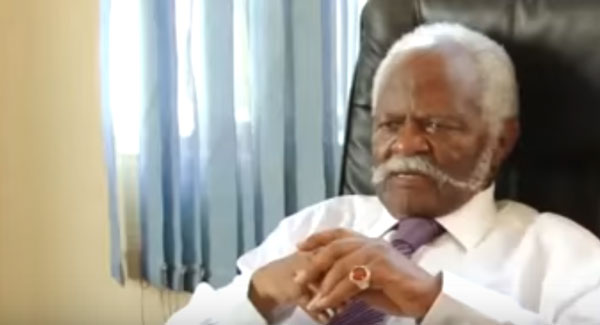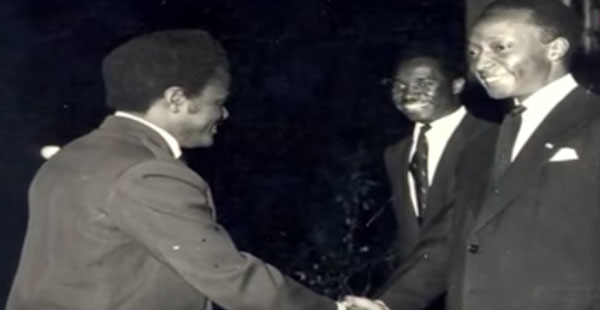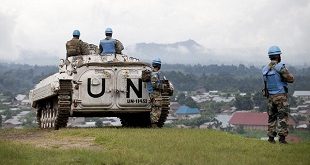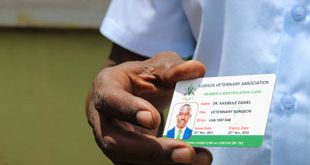
Nkangi, the man who saved the soul of Buganda’s power
By Andrew S. Kaggwa
One Sunday in 1964, a young man called Mayanja Nkangi was going about his normal business when someone stopped him and said: “We want you to be a Katikkiro. The lukiiko (Buganda parliament) are annoyed with the previous Katikkiro for letting the counties go.”
At the time the Buganda Kingdom Katikkiro (prime minister) was democratically elected by the Lukiiko (Buganda kingdom parliament) and on August 17, 1964, Nkangi was overwhelmingly elected Buganda’s Katikkiro. He was only 33 years old at the time and unmarried.
He was to serve at a turbulent time which culminated in the 1966 crisis when then-prime minister of Uganda, Milton Obote ordered the national armed forces commanded by Idi Amin to invade the seat of Buganda kingdom power, Kabaka’s palace at Lubiri on May 24 forcing the Kabaka to flee into exile.
Nkangi narrated these stories in memoirs published in a newspaper and many Ugandans recalled them when news broke on March 6, 2017 that he had died. His daughter Josephine Mayanja Nkangi, a communications officer, said he died at Kampala International Hospital of pneumonia. He was 86 year old.
EARLY YEARS AND EDUCATION
Nkangi was born in 1931 to Sibakyalwawo and Yozefina Ntale of the then Masaka but now Kalungu District. Between 1937 and 1946 Nkangi went to Kabungo Primary School, still in his home area, where he studied up to P.4 and later to Kako Junior School between 1944-1946 where he did his P4 and P.5. As luck would have it for Nkangi, at a time when schools were few and Kako was promoted to a junior school and he stayed there to do his Junior One and Two on a bursary from the Buganda government before joining the then prestigious Kings’ College Budo for his secondary education.
In an interview before his death, Nkangi told an interesting story of how the headmaster of Kako told him to jump on his bicycle and they rode all the way to Kings’ College Budo where he was offered a place on a partial bursary by the school because of his excellent academic performance.
“’The school fees for a term at the time was Shs300 and the school paid for me Shs200 and my father who was a peasant farmer had to look for the other Shs100” Nkangi is quoted to have said. He later joined Makerere College for his A’ level and proceeded to Makerere College of East Africa (now Makerere University), which was then affiliated to London University.
At Makerere, Nkangi studied Maths and Economics and passed highly enabling him to win a government scholarship to do his Master’s degree in Economics and Public finance at the University of Oxford in England in 1954.
After completing his Master’s degree, Nkangi decided to pursue another degree in law at the Lincoln’s Inn of Courts in London and returned to Uganda in 1960 as a lawyer.

EARLY POLITICAL LIFE
Fresh from studies abroad and with the independence tide sweeping across different African countries at the time, Nkangi decided to form a political party called the United Party, which he later changed to United National Party.
In 1962, he abandoned it and joined the Kabaka Yekka (KY) party which was mainly a pro Mengo establishment party at the time. Nkangi was elected KY MP for Masaka East in May 1962.
During the 1962 multiparty elections, KY which was one of the major parties with the Democratic Party (DP) and Uganda People’s Congress (UPC), made a coalition with UPC to defeat DP then led by late Ben Kiwanuka which was seen as more republican, Catholic and against the Mengo establishment.
After the elections, the late Milton Obote, head of UPC, became the prime minister and nominated the Kabaka of Buganda (the late Sir Edward Muteesa II) to serve in the largely ceremonial position of president of Uganda.
Nkangi was also to get his own share for accepting a coalition with UPC when he served in several positions in the government, including parliamentary secretary and then minister without portfolio in the ministry of economic affairs. Then for the next two years, Nkangi was the commerce and industry minister.
In an interview with a newspaper (New Vision) two years ago, Nkangi emotionally describes how in 1964 his KY fell out with Obote’s UPC and he was given matching orders from government.
“The KY party held a rally in which speakers spoke against UPC. Obote was infuriated. He said we had abused UPC. I remember I had just returned from the East African Community meeting. He gave me a letter sacking me from the post of minister. I could not believe it, but I kept quiet and went to my law chambers to go on with business,” Nkangi was quoted as saying.
Relations between UPC and KY went from bad to worse with the straw that broke the camel’s back when, in 1964, Obote championed a parliamentary bill providing for a referendum in the Buganda counties of Buyaga and Bugangaizi. The counties were split from Buganda and were reverted to Bunyoro. This was a bitter pill to swallow for not only Nkangi and his KY but also many Baganda and Mengo establishment as it was a sign of demeaning the Kabaka.
It was the bitter reaction to the counties decision that led to Nkangi being elected Katikiro and eventual exile.
 The Independent Uganda: You get the Truth we Pay the Price
The Independent Uganda: You get the Truth we Pay the Price



